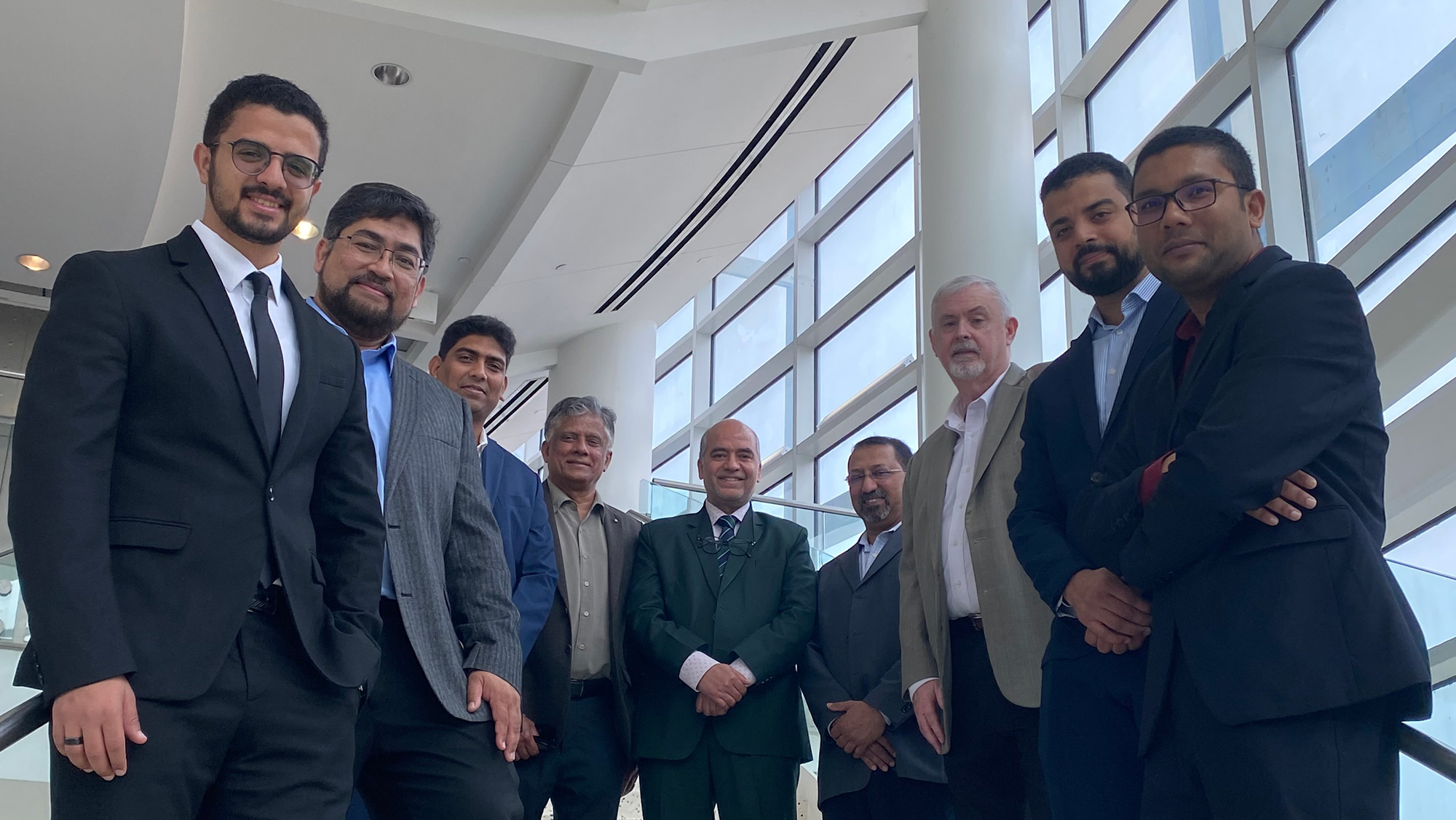
The need to find a safe and efficient way for carbon capture and storage on marine vessels has brought together a collaborative research effort between the American Bureau of Shipping (ABS) and Texas A&M University’s Mary Kay O’Connor Process Safety Center (MKOPSC).
This project on onboard carbon capture, utilization, and storage (OCCUS) is led by chemical engineering Ph.D. candidate Ahmed El-Kady, along with chemical engineering professors Drs. Faisal Khan, Tanjin Amin and Nazmul Rahmani and ABS contributors Quaim Chowdhury, Altaf Shaik and Dr. Kevin McSweeney.
The research grew from a practical need that was identified through safe maritime decarbonization, according to Dr. Faisal Khan, department head of chemical engineering and director of MKOPSC.
“In this work, we have examined the safety and integrity challenges pertinent to the implementation of carbon capture and storage onboard vessels and offshore platforms,” said El-Kady.
As offshore energy operations and maritime transportation continue to grow, safe decarbonizing of these operations is critical to achieving the decarbonization targets set by the International Maritime Organization (IMO).
Collaboration with world-class universities such as Texas A&M is critical for enabling ABS to support the maritime industry’s journey to net-zero emissions.
“Collaboration with world-class universities such as Texas A&M is critical for enabling ABS to support the maritime industry’s journey to net-zero emissions,” said Patrick Ryan, ABS senior vice president and chief technology officer.
The team plans on performing a detailed techno-economic analysis on different capture and utilization techniques and finding the value-added products that can be produced onboard from the captured CO2.
“The International Maritime Organization has aimed to phase out greenhouse gasses from maritime shipping by 2050,” Khan said. “To meet IMO’s target, the maritime industry is looking for potential alternative energy sources to conventional fossil fuels.”
Additionally, most of the current projects in this domain focus on techno-economic feasibility. However, safety is important for safe maritime decarbonization.
Their analysis examined various capture methodologies, assessing their suitability for onboard deployment while accounting for spatial limitations, technological readiness, and energy demands, according to Amin.
The end goal of this research is to know the safe and efficient carbon capture and utilization techniques on marine vessels, where space and environments are the greatest challenges.
The team also explored diverse onboard utilization pathways and identified suitable temporary storage physical states, and they provided a thorough examination of associated hazards.
“This research will be a showcase of a collaborative effort between ABS and TAMU on maritime decarbonization,” Khan said. “We have identified a potential and effective solution for onboard carbon capture based on our existing technologies.”
That included an encompassing risk stemming from exposure to high CO2 concentrations, dense phase CO2, various impurities in captured CO2, and chemical interactions with seawater.
“By developing a better understanding of the challenges and advantages of different carbon capture technologies, Texas A&M’s research will help guide the industry toward successful and safe implementation across the value chain,” Ryan said.
In the coming years, the project will disseminate findings on how the captured CO2 can be safely stored and reused.
“The end goal of this research is to know the safe and efficient carbon capture and utilization techniques on marine vessels, where space and environments are the greatest challenges,” Khan said